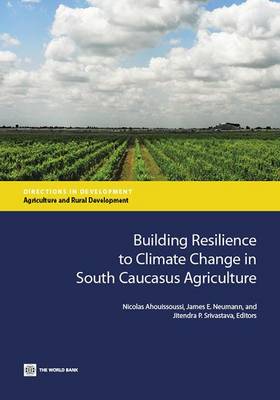Building Resilience to Climate Change in South Caucasus Agriculture illustrates the World Bank's commitment to assist countries in responding to the opportunities and challenges posed by climate change. Undertaken in collaboration with policymakers, farmers, and civil society organisations in Armenia, Azerbaijan, and Georgia, the book provides a much-needed response to the call for action by quantifying the impact and identifying the key priorities for policies, programs, and investments in order to reduce the vulnerability of agricultural systems to climate change in the South Caucasus. The South Caucasus is already contending with increasing aridity and more frequent extreme weather events (e.g., severe droughts, floods, and hailstorms). The study responds to the call for climate adaptation measures highlighted in the World Bank's 'Turn Down the Heat' report, presenting practical solutions for a more climate-smart agriculture at the regional, national, and agro-ecological zone level in Armenia, Azerbaijan, and Georgia and highlighting the need and potential for regional collaborative action to increase benefits. The research in Building Resilience to Climate Change in South Caucasus Agriculture is an important beginning. The analysis demonstrates that investments in irrigation infrastructure and on-farm technologies have great potential to raise agricultural productivity and improve the climate resilience of the sector. Demand-side agricultural water management will have high short-term payoffs, and these payoffs are complementary to the success of long- term irrigation, drainage, and other infrastructure investments. Strengthening the disaster risk management strategies beyond agricultural measures is also needed, to help mitigate household exposure to extreme events, especially for the poorest individuals, who are the most vulnerable.
- ISBN10 1464802149
- ISBN13 9781464802140
- Publish Date 6 May 2014
- Publish Status Active
- Publish Country US
- Imprint World Bank Publications
- Format Paperback
- Pages 162
- Language English
